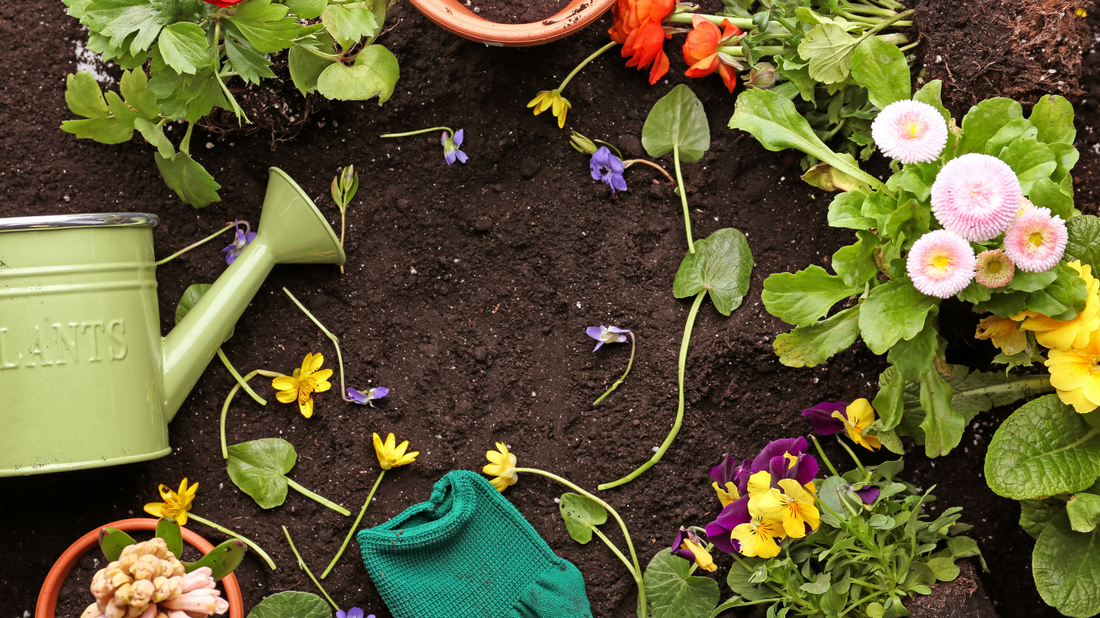Growing healthy, vibrant plants isn’t just about watering and sunlight—nutrition plays a crucial role. Just like humans need a balanced diet to stay healthy, plants also require essential nutrients at the right time and in the right amounts. Fertilizers help provide these nutrients, especially when the soil alone can’t supply everything.
In this blog, we’ll break down:
- Why plant nutrition matters
- Types of fertilizers
- When to use them
- How to identify nutrient deficiencies
- Tips for choosing the right fertilizer
Perfect for home gardeners, farmers, landscape lovers, and anyone passionate about plant health!
Why Is Plant Nutrition Important?
Plants need nutrients for:
- Growth and development
- Flowering and fruiting
- Root strength
- Disease resistance
- Chlorophyll production and photosynthesis
When soil lacks nutrition, plants suffer—leading to yellow leaves, stunted growth, weak roots, or poor yield. Fertilizers step in to give plants the boost they need.
Types of Plant Nutrients
There are three types of essential nutrients:
1. Macronutrients

Needed in larger quantities:
- Nitrogen (N): Leaf growth, greener plants
- Phosphorus (P): Root development, flowering
- Potassium (K): Immunity, fruiting, overall strength
These three are known as NPK and are the backbone of most fertilizers.
2. Secondary Nutrients
Required in moderate amounts:
- Calcium (Ca)
- Magnesium (Mg)
- Sulfur (S)
3. Micronutrients
Small in quantity, big in impact:
- Zinc (Zn)
- Iron (Fe)
- Manganese (Mn)
- Copper (Cu)
- Boron (B)
- Molybdenum (Mo)
Lack of micronutrients can lead to drought stress, yellowing leaves, and growth failure.
Types of Fertilizers & When to Use Them
Different fertilizers serve different purposes depending on the plant's stage and soil condition.
1. Organic Fertilizers
Made from natural sources:
- Compost
- Cow dung manure
- Vermicompost
- Neem cake
- Oilcakes
- Seaweed extract
Benefits:
- Improve soil structure
- Safe for long-term use
- Increase microbial activity
Best time to use:
Before planting, during soil preparation, or at early growth stages.
2. Chemical/ Inorganic Fertilizers
These deliver nutrients quickly:
- Urea (Nitrogen)
- DAP (Phosphorus)
- MOP (Potassium)
- NPK blends (e.g., 19:19:19, 10:26:26)
Best time to use:
During active growth for fast correction or boosting.
3. Water-Soluble / Foliar Fertilizers
Sprayed directly on leaves or used in drip irrigation:
- Micronutrient mixes
- NPK sprays
Best time to use:
When plants show deficiencies or during flowering/fruiting.
4. Slow-Release Fertilizers
These nourish plants over time:
- Granulated organic fertilizers
- Coated NPK granules
Best time to use:
In pots, gardens, orchards, and lawns.
When to Fertilize Plants?
Timing is everything! Here’s a simple guide:
✓ Before Planting
Add compost or organic manure 1–2 weeks before sowing or planting.
✓ Early Growth Stage
Provide nitrogen-rich fertilizers for leaf development.
✓ Flowering Stage

Switch to phosphorus-based fertilizers for buds and blooms.
✓ Fruiting Stage
Use potassium-rich fertilizers to enhance size, color, and quality.
✓ Maintenance Feeding
Every 30–45 days for garden plants, and as needed for crops.
Signs Your Plants Need Fertilizer
Watch out for these common symptoms:
- Yellowing leaves → Nitrogen deficiency
- Purple or dark leaves → Phosphorus deficiency
- Brown edges or weak stem → Potassium deficiency
- Poor flowering → Lack of micronutrients
- Stunted growth → General nutrient deficiency
Instead of guessing, choose the right fertilizer to solve the problem.
How to Choose the Right Fertilizer
Here’s how to decide:
✔ Based on Plant Type:
Flowering plants: High P and K
Leafy vegetables: More N
Fruit plants: Balanced NPK + micronutrients
✔ Based on Growth Stage:
Young plants → nitrogen
Flowering stage → phosphorus
Fruiting → potassium
✔ Based on Application Method:
Soil application → compost, granules
Spray/drip → foliar fertilizers
Sustainable Fertilization With Nature Care Fertilizers
To avoid the long-term harm caused by chemicals, organic and biosolutions are the future. Products like:
Green Harvest Happy Plant Organic Fertilizer
Nutriwin Combi Chelated Micronutrient Spray
Absorber Water Holding Polymer
Drip-based micronutrient blends

